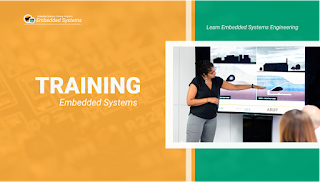Did you know that Embedded systems are a keystone of the modern electronics industry ? It’s an embedded system what is designed for a specific purpose.

The system gets its name from the fact that the software is embedded into it for a particular application. Generally, a hardware platform is a micro controller, processor in which the program is deserted.
The hardware has its personal software. And, they are either Machine code or Programming code like C, C++ code.

Benefits of embedded systems
There are several advantages, benefits of embedded systems use. Such as,
And, These operating systems are dedicated to one device. That is why, performance is good and use less resources like memory and micro-processors.

Recommended training programs for learning embedded systems
Tonex offers 2 vital courses in embedded systems training field.
1) Embedded Systems Engineering Certificate
This 4-day course highlights all sides of developing reliable real-time embedded systems .

What is embedded systems ?
The system gets its name from the fact that the software is embedded into it for a particular application. Generally, a hardware platform is a micro controller, processor in which the program is deserted.
The hardware has its personal software. And, they are either Machine code or Programming code like C, C++ code.

Benefits of embedded systems
There are several advantages, benefits of embedded systems use. Such as,
- Quite faster to load and smaller size
- Definitely, easy to manage
- Absolutely, low cost
- It requires fewer resources
And, These operating systems are dedicated to one device. That is why, performance is good and use less resources like memory and micro-processors.
Where to use embedded systems ?
Likely, transportation applications can range from solar powered ticket and information kiosks to tracking and remote power train control in all manners of transportation environments from automotive and avionic to passenger and freight railway.
Likely, transportation applications can range from solar powered ticket and information kiosks to tracking and remote power train control in all manners of transportation environments from automotive and avionic to passenger and freight railway.
Just think about every household and business sector now entirely depends on embedded systems.

Recommended training programs for learning embedded systems
Tonex offers 2 vital courses in embedded systems training field.
1) Embedded Systems Engineering Certificate
This 4-day course highlights all sides of developing reliable real-time embedded systems .
2) Embedded Linux System Overview
This 2-day course offers attendees a brilliant knowledge of Linux kernel and libraries and lots more.
This 2-day course offers attendees a brilliant knowledge of Linux kernel and libraries and lots more.
Tonex Embedded Systems Training Programs.
Seeking for information ?
Comments
Post a Comment